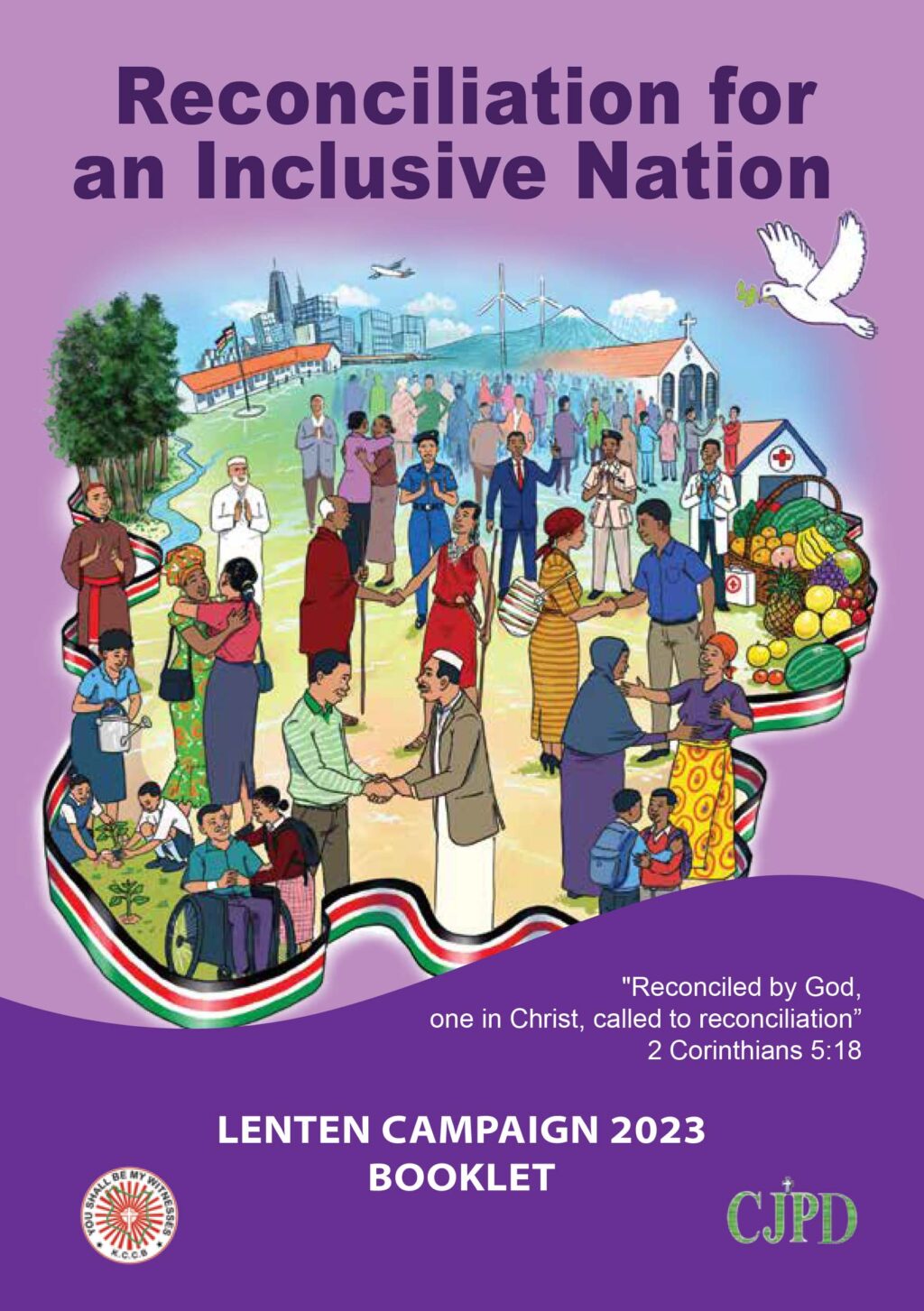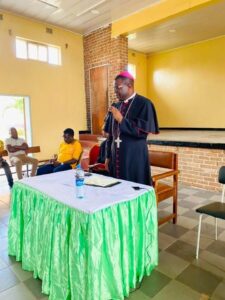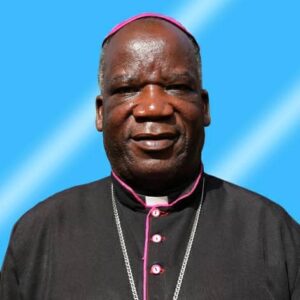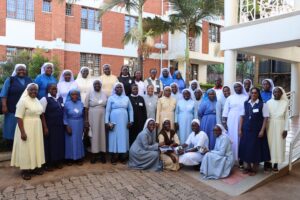KENYA: 2023 Lenten Campaign To Call on Catholics to Reflect on Reconciliation for an Inclusive Nation

Sr. Jecinter Antoinette Okoth, FSSA
Ahead of the 2023 Lenten season in the Catholic Church slated to commence on Ash Wednesday, February 22, members of the Kenya Conference of Catholic Bishops (KCCB) in their Lenten campaign booklet have asked Catholics to give a deeper reflection on the Sacrament of Reconciliation as a means to enhance inclusivity of all people in the country.
Spearheaded by the KCCB’s Commission for Promotion of Integral Human Development (CPIHD), Catholic Justice and Peace Department, the Bishop Chairman for the Commission Rt. Rev. John Oballa Owaa noted the injustices that are happening in people’s lives today and insisted that the 40-day Lenten journey should be a moment for introspection so as to “amend our ways and, like the prodigal son, return to our Father who embraces us as we are.”
Bishop Owaa of Kenya’s Ngong Diocese highlighted various thematic areas for weekly reflection during the Lenten period narrating that “The graces of our Lenten Campaign should be seen in the little actions we do throughout this period of prayer, fasting and committing to acts of charity.”
In the first week of Lent the Prelate said, Catholics are to reflect on “reconciliation” basing their prayers “on ways in which our human acts accelerate injustice.”
“We will never be at peace with ourselves and our neighbours if greed and exclusion take centre stage in our communal life,” the Lenten booklet explains, “To contain conflicts, mistrust and selfishness, all community members must be involved in decision making through regular dialogue.”
For the second week of the Lenten season, Catholics are called upon to reflect on mental wellness owing to the fact that cases of insanity are on the rise in the country and there is need to work together so as to create favorable and acceptable living conditions for everyone.
“We acknowledge that cases of mental illness are on the rise. Economic hardships, changing family dynamics, intense secular values that draw people to pleasure and consumerism and a sweeping sense of hopelessness among especially young people and families, are driving people into anxieties and depressions which sometimes result in murders and suicides,” Bishop Oballa revealed and called upon the Church “to strengthen good relationships in our neighbourhoods, places of work and any other interactive space as a deliberate measure to slow incidents of mental illness.”
The third week will focus on the youth as hope of our society whereby the CPIHD- Catholic Justice and Peace Department narrates that “Positive social change is brought about by people who from their youthful age desire to make the world a better place to live in.”
The Lenten booklet read in part that the young people who start to seek justice and peace from a tender age, “see everyone around them as fellow human beings, regardless of tribe, race or social status.” (And) “With constant prayer and looking up to God for guidance, any young person can change a situation from bad to a peaceful one.”
Another thematic area of concern is on economic justice and the Bishop laments the high cost of living and the difficulty Kenyans find to make ends meet.
“Most Kenyans are hard-working, always ready to put in long hours to ensure a living. Besides, we have huge wasted resource in form of educated but unemployed young women and men,” Bishop Oballa highlighted in the booklet shared with AMECEA online and questioned the rising cost of living adding that, “While we understand the global financial performance impacts our local financial performance, we should also interrogate the way we run our economy.”
According to the Chairman for commission whose mission is to fulfil one of the general objectives of KCCB on promoting justice and challenging oppressive structures in the society, the decentralization of powers in Kenya from the central government to local government, “has given many people hope, yet it needs to be strengthened.”
He notes that the poor performance of the country’s economy and massive borrowing is “down to our value systems,” no wonder whatever amount of money one gets, “It is the set of values the owner cherishes that determines how it is to be used.”
The Catholic Church finally calls on Christians to focus on ecological education during the fifth week of Lent since climate justice is a strong global call.
“Protection of the environment and appreciation that nature deserves care are matters of right, not simply a choice. We contribute to climate change whose effects are seen in the unpredictable droughts, flooding, drying of rivers and swelling of lakes and oceans,” the Local Ordinary of Ngong Diocese narrated adding that, “Both human life and the lives of other living things are now at a great risk.”
He stressed that the Church and other global actors have called on every one to deeply reflect on ways that ensure we “stop destroying forests, logging, clearing bushes, dumping, misuse of agricultural chemicals and all other forms of environmental carelessness which negatively impact human life and fuel strange diseases.”
There is need therefore the Kenyan Prelate said, “For continued reflection and education on ways to ensure proper agriculture methods, including seed production, food storage, distribution and consumption for a healthy nation, and bring down this discussion to the grassroots where the impact of ecological education is most needed.”


